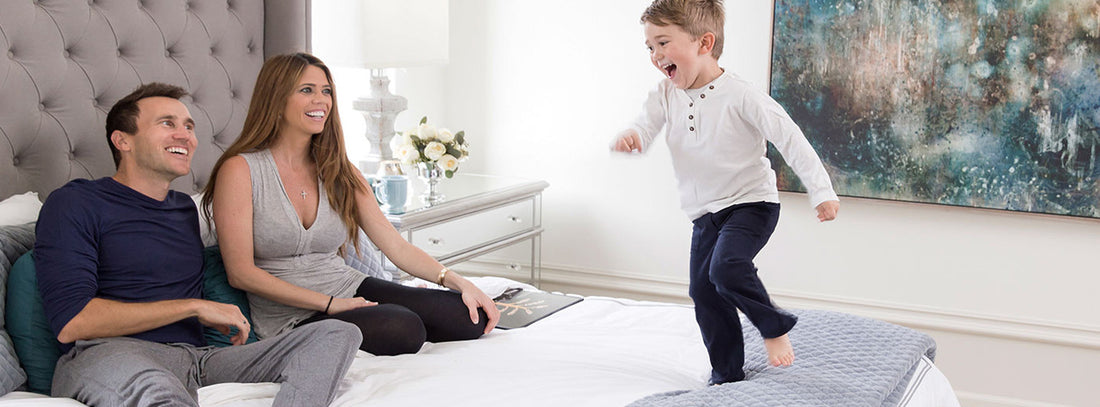We all love to sleep. We all love technology and gadgets. And we can’t get enough of either!
The good thing is, technology has found its way into the bedroom, from dimming lights to smart beds. We live in an exciting time period where technology has lots of approaches to enhance one’s sleep experience. Many people lead hectic lifestyles nowadays and don’t have enough time to sleep or relax. The outcome is that people become less productive and sicker. To address this concern and many other related issues, companies are developing sleep aids. They tend to invest in sleep technologies because it’s an area that’s never going to run out of business. So, what does the future have to offer for sleep? What would it be like to sleep in 15 years from now?
There are many sleep aids out there than you think in the current market and many more in laboratories in their testing and quality assurance phases. First of all, let’s take a look at the technologies we already have and then discuss the future of sleep technology.
Current Sleep Tech
Glow lights – with glow lights, you can set a waking time, how the glow would work from dim to light and its peak time and brightness. Then it will wake you up by imitating the natural sunrise. Some glow lights can be placed in other bedrooms and you can control them from yours.
Baby bassinets – there are smart baby bassinets where it can rock your baby back and forth, speed up if the baby cries and soothe your baby. So mothers can have a little rest after all.
Fast sleep – If you wake in the middle of the night or you take too long to fall asleep, there are devices you can use to make you fall asleep faster. There is a device that, when you touch it, projects a beam light that contracts and expands rhythmically. It reduces your heartbeat, calms you down and finally makes you fall asleep.
Alarm clocks – there are new alarm clocks which are integrated with sensors to analyze humidity, sound level, temperature and luminosity of your bedroom. These alarm clocks come with a mobile application where you can adjust the above-mentioned factors as suggested by the app. It also tracks your body movements, sleep duration and sleep cycles.
Pillows – many people have a habit of listening to music in bed. But most of the time, when you wake up, your headphone wire is all tangled. Music can be loud and affect other people’s sleep too. So, there are pillows which play music while you doze off.
There are many other technology trends in this domain such as alarm clocks that make scents of fresh coffee, warm toasts and many more, rings that stop your snoring by pressing acupressure points, duvets that give you the hot or cold comfy feeling as you prefer, apps that read you bedtime stories and etc. So the question is, apart from all these responsive surfaces, body data synthesizers, sleep environment modifications and wearable devices, what does the future have to offer for sleep?
Future Sleep Tech
There’s a growth in technology for sleep disorders. Artificial Intelligence is able to guide and manage sleep conditions as insomnia. As Rich Rosenburg, AAST’s Education Consultant writes, there are two emerging approaches to treat these illnesses. One is to use objective data and measure the success of a particular treatment by analyzing genes and biomarkers. The second approach is to use subjective data and analyze how successful a certain medication was for a patient with a similar profile. With the help of AI and other technologies, the future of sleep disorders will look brighter.
Experts in emerging technologies predict that, within 20 years, there will be devices that will help us function on less sleep. It’s hard to predict what these devices will look like. But they might be teeny tiny chips and maybe can implant in your brain stimulating certain parts of the brain, changing your body chemistry. We will have less sleep and more daytime to function in the future.
The future may also hold tracking devices where it can track all your sleep-related activities as in your dreams, your positions, movements, identify sleep disorders, identify what causes sleep disorders and improve your nighttime regeneration. And portable devices or integrated systems which will act the same no matter where you travel, no matter which hotel or country you chose to spend your vacation, your sleep routine will be the same as always. The future will have sensors that will automatically open your bedroom windows when you are about to wake up and give you a fresh breeze of air to freshen up your morning.
Already, there are alarm clocks that make coffee for you when you wake up. So, in the near future, we will surely get alarm clocks or separate tech gadgets where it makes you coffee, toasties/ cereal for you and provide you with updated information, all per your preference. Therefore, you will be able to spend more time in your bed eating your breakfast. It sounds better than waking up and making breakfast yourself, isn’t it? Also, just imagine, when you wake up in the morning, you can see all the dreams you dreamt the night before on a screen by an actual, literal dream catcher! Wouldn’t it be nice? Well, it wouldn’t be if you were having a nightmare for sure!
We hope technology will get to a point where it enhances the comfort of your sleep than make your head scratch!
References
https://amerisleep.com/blog/future-of-sleep/
https://www.dreams.co.uk/sleep-matters-club/sleep-technology-and-the-future-of-sleep/
https://www.sleep.org/articles/leverage-technology-for-better-sleep-tonight/

